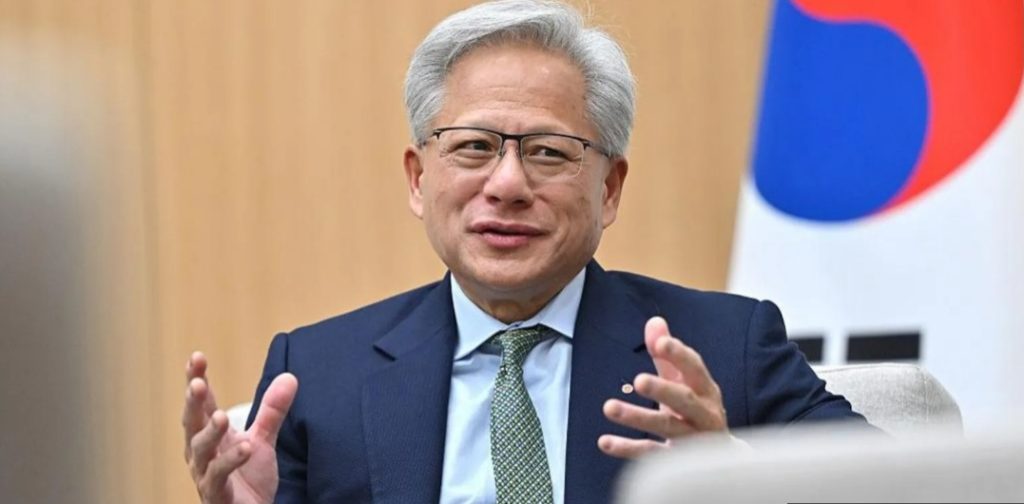
Crystal Dike
US chipmaker Nvidia on Friday signed a series of landmark agreements with the South Korean government and major technology companies — Samsung, LG, and Hyundai — to supply more than 260,000 of its most advanced artificial intelligence (AI) chips.
The chips will be deployed in factories across South Korea to power production of semiconductors, robots, and autonomous vehicles. Nvidia Chief Executive Jensen Huang said the deals would enable the country to “produce intelligence as a new export,” though he did not disclose the financial value of the contracts.
Huang, speaking at a CEO summit on the sidelines of the Asia-Pacific Economic Cooperation (APEC) meeting in Gyeongju, said the companies would use the chips to create “digital twins” of their factories and strengthen AI capabilities across industries.
The agreements form part of Nvidia’s ongoing global expansion of AI infrastructure. They came the same week the company became the first in history to reach a $5 trillion market valuation on Wednesday, followed by signs on Thursday of easing US-China trade tensions that could reopen chip exports to China.
Under the new deals, over 50,000 Nvidia chips will power data centres at South Korea’s National AI Computing Center and at private facilities operated by Kakao and Naver. The South Korean government also plans to establish “sovereign AI” infrastructure, ensuring domestic control over national computing resources.
President Lee Jae Myung has pledged to make AI investment a national priority, positioning South Korea as a regional AI hub. Huang said the country was ideally placed to expand AI infrastructure due to its manufacturing expertise, energy capacity, and available land for large-scale industrial projects.
The South Korean agreements come as Nvidia faces challenges from the US-China trade conflict, which has blocked sales of its most advanced chips to Chinese buyers. “We used to have 95% share of the AI business in China. Now we’re at 0%,” Huang said on Friday.
Following a meeting between US President Donald Trump and Chinese President Xi Jinping on Thursday, Trump said Beijing would hold talks with Nvidia to discuss potential chip sales, describing the US role as a “referee.” Huang said he hopes new policies will allow Nvidia’s Blackwell chips to re-enter the Chinese market.
Nvidia relies on manufacturing partners across Asia, including TSMC, Samsung, and SK Hynix, to produce its chips. TSMC manufactures the firm’s most advanced processors, while Samsung supplies components for the H20, a scaled-down version designed for China under US export restrictions.
Despite geopolitical hurdles, Nvidia’s share price rose sharply this week, buoyed by the South Korea agreements and new partnerships with the US Department of Energy, Nokia, Uber, and Stellantis. The company’s expanding network of global deals continues to strengthen investor confidence in its dominance of the AI industry.
